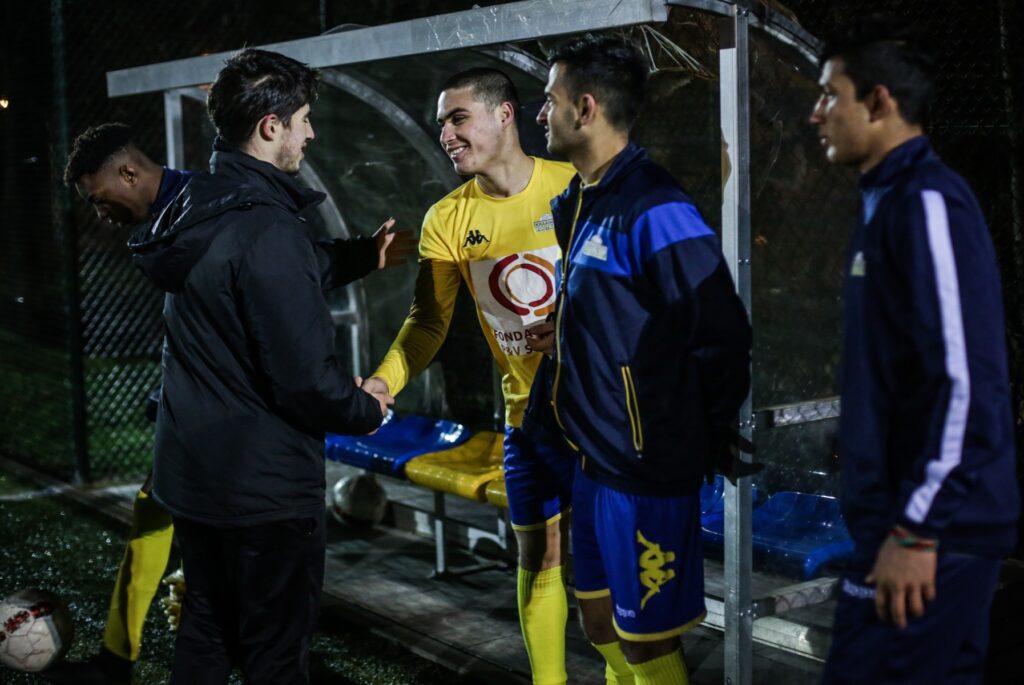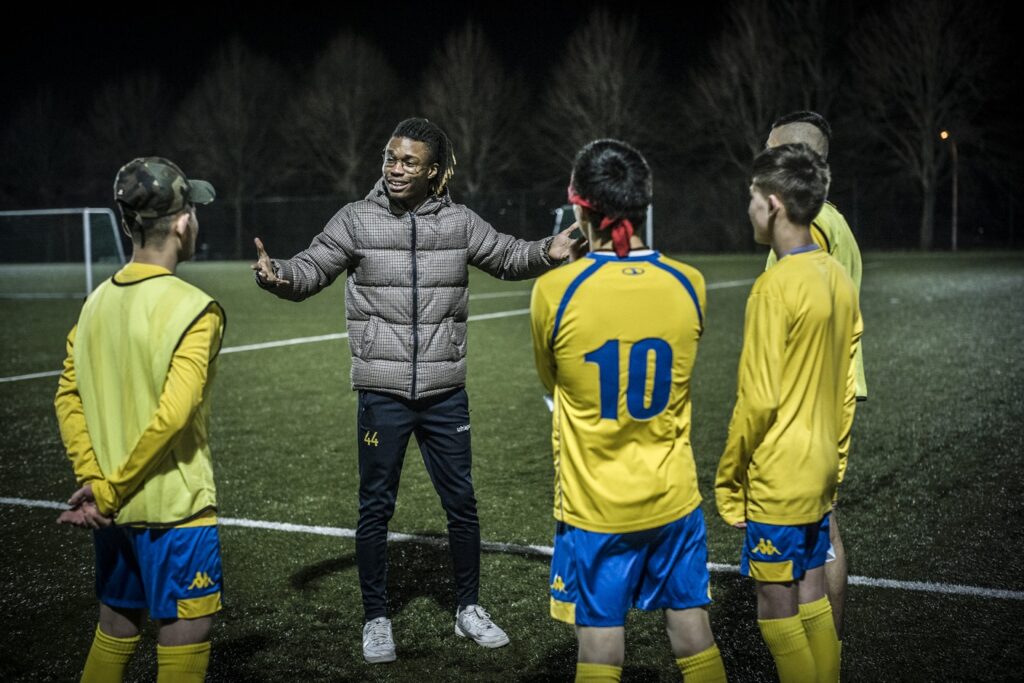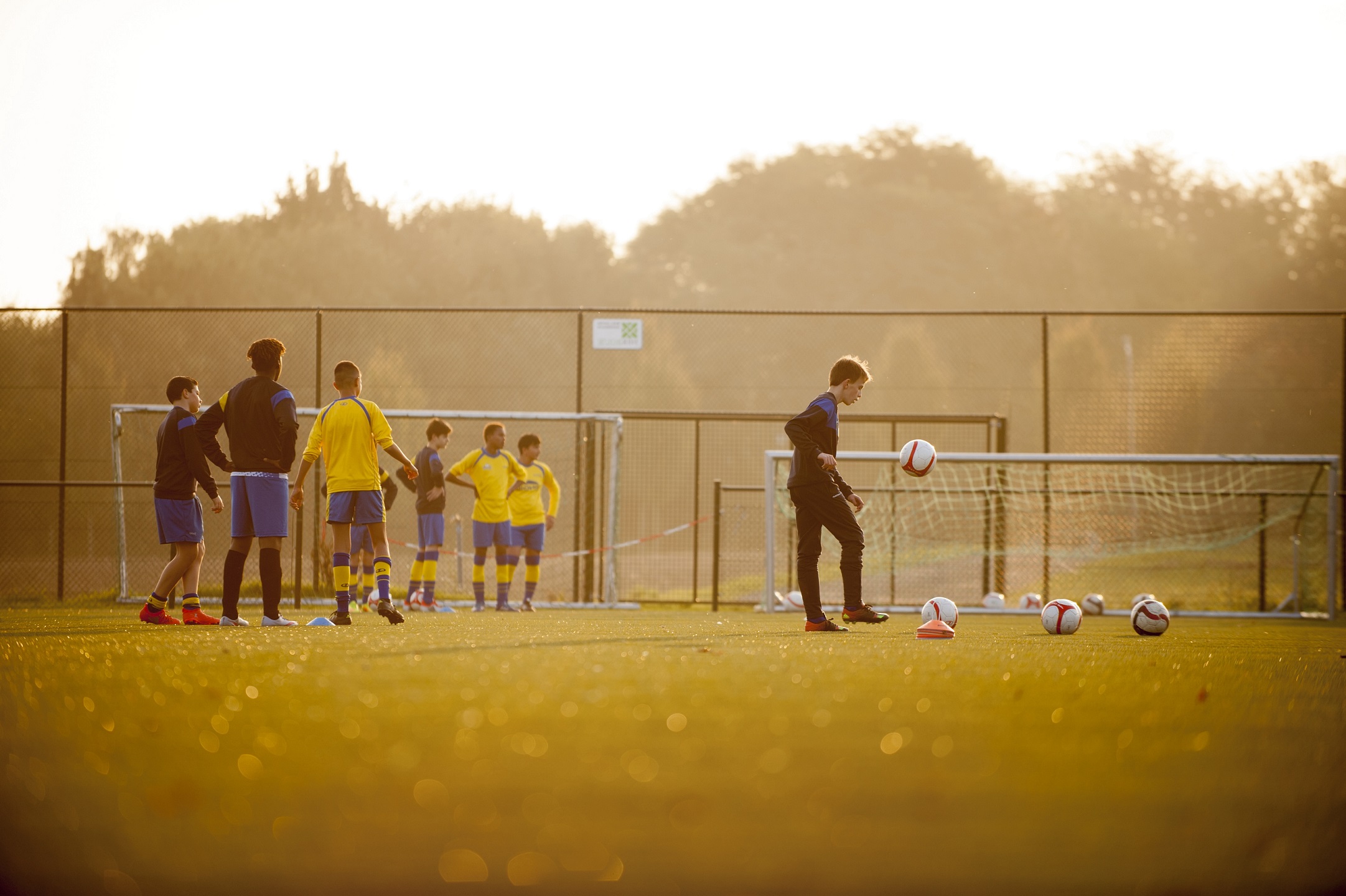The threat of drizzle fails to dampen the mood at Royale Europa Kraainem Football Club on the first Saturday in June. The club is hosting its seventh annual football tournament, Freedom and Football, which invites boys and girls from neighbouring refugee and Red Cross centres to form teams and take part.
Indeed, as the matches kick off on the club’s all-weather pitch, smiling faces abound. It’s perhaps no surprise. The club is offering young people, often unaccompanied minors, an opportunity they might not otherwise have had.
The tournament forms part of a wider initiative of the club – We welcome young refugees – the brainchild of club chairman Laurent Thieule. However, he credits his wife with having played a key role in the story when she suggested they host a refugee family at the beginning of the Syrian crisis. His reply: “I have a better idea; we will welcome a thousand refugees to the club!”
True to his word, he estimates that since the launch of the project in September 2015 the club has welcomed 4,000 refugees. The concept has changed little during this time: up to around a dozen kids aged under 18 are taken to the club every night from different local Fedasil centres – which are the initial point of contact for refugees seeking asylum – and Red Cross centres.
They gather at 5pm, and for an hour, they sit around a table to take part in a conversation (in English, French and Dutch) overseen by volunteers who encourage them to learn about the local culture and to discuss topical issues. Football training follows, and they return to their centres around 8pm after enjoying a meal at the clubhouse.
Initially, Thieule would pick up the boys himself in his car and the club would provide boots and kit out of its own spare stock. However, he was soon able to attract financial support for the project, including funds from a range of EU programmes.
Thieule retired from the Committee of the Regions three years ago, and no doubt, his knowledge of the EU institutions was useful. Other sources of funding include the UEFA Foundation for Children and the Royal Belgian Football Association, along with corporate sponsors, and the initiative can now adequately provide kit to players and sustain a small team of employees, including an official driver, who fetches the kids in a van and then ferries them back.
Although for most of the kids, their experience of Kraainem FC will be short-lived, since they are typically transferred to other centres elsewhere in Belgium after four weeks, Thieule is enthusiastic about its impact. “Football can be a door that we open together to facilitate their integration,” he says. “They recover their dignity, which may have been lost during the journey from their home country. When they arrive here, they smile again, even if they only come four times.”

Refugee players are welcomed
He is also very pleased that the club is now welcoming young girls from countries such as Algeria, Syria and Tunisia, although around 80% of the refugees that come are still male. The club has also established contacts with the refugee centre Ukrainian Voices, and this year has been regularly welcoming young kids aged nine to 14 from the country one evening a week.
United colours
At the Freedom and Football tournament, among the 200 refugees taking part, the Ukrainian team’s yellow shirts and blue shorts match Kraainem’s team colours. The team, which is a little older than the usual age group, thumps four goals past its opponents, as I chat with its coach Serhii through the magic of an online speech translator (which amusingly picks up a few on-field Ukrainian expletives). After the match, these slightly older lads say that schoolwork now takes precedence over regular football, although they appreciate the connection with the club.
I also meet the project’s manager, Valentine Lenoir-Bufflier, who is kitted out in a Belgium strip (despite being from France) and ready to join her team for the day. She works part-time on the project (19 hours a week), maintaining contact with the centres and networking. The concept has been replicated around Belgium and abroad, and now around 40 clubs welcome refugees to some degree.
Her team also now includes a dedicated coach because “some of the kids that come have never touched a ball and cannot be immediately integrated into a Kraainem team.” She also says she explores possibilities with the centres for arranging visits to the parliament or attending a match. “Social inclusion is really important. I think some feel that they are integrating into Belgium.”

Krainem Football Club
Being able to provide the kids with the team’s shirts also helps them feel included. “They are not just refugees; they are players for Kraainem!”
One such graduate of the project, 19-year-old Melvin from Sierra Leone, harbours dreams of making it as a professional and now plays for Olympic Anderlecht. He tells me he’s happy to be back in his former club’s colours and doesn’t seem too disappointed that his team have just failed to win its match. Another returnee, Aime from Burundi, simply says he’s grateful to the club for teaching him how to play ‘European-style’ football and says that the project’s conversation sessions provided him with much-needed direction, both in terms of the beautiful game and life in general.
Local pride
Finally, I introduce myself to Nina from the Red Cross. She is captaining a team of girls, who have arrived in Belgium unaccompanied, several of whom are playing in headscarves. She emphasises the financial and administrative barriers that would normally prevent these kids from being able to play with clubs such as Kraainem, but she also suggests that existing members benefit from the initiative as much as the new recruits. “The Belgian players, especially the young kids, who go to school and maybe stay in privileged circles, don’t really know much about refugees, how they appear and what languages they speak, and this initiative gives them the chance to learn more.”
Indeed, I ask club chairman Laurent about how local club members are responding to the project. He stresses that it was important to explain what they were doing and why, and to reassure members that they would not be asked to contribute to the funding of the project. He has sought to develop the club’s diversity under his leadership for the past 18 years, and a few months ago, the club sent a questionnaire to parents of young players to canvass their views. The responses, he beams, confirmed that the parents are “proud that their kids are playing at a club that welcomes refugees.”

